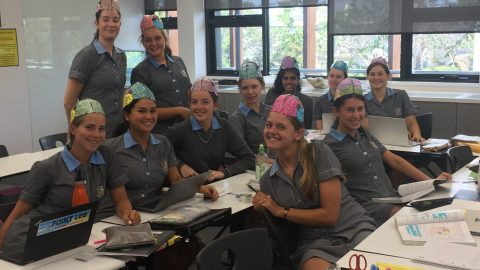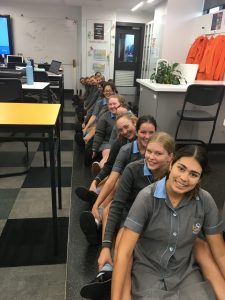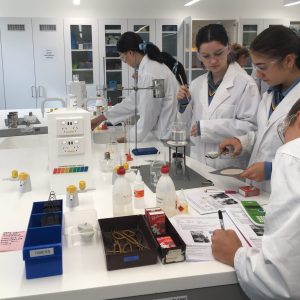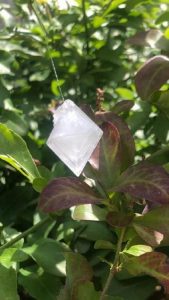Science Update

Scientific investigations are well-underway across the year levels to assist students in their understanding of scientific method and design, so they can become better critical thinkers in relation to scientific research.
Staff are part of a continuous cycle of reflection, questioning and action. Teachers commit to this cycle in order to determine changes that will improve the learning outcomes of their students. A range of activities have been developed by Science teachers to engage this critical and creative thinking.
Different methods of scientific inquiry that generate primary data are currently being utilised by students to solve scientific problems. The foundations of scientific method are developed from Year 7 through to the Year 10 electives. Students’ scientific inquiry skills have developed since the faculty redesign of student design investigations at all year levels in 2015.
As Year 7 students have been investigating the science regarding immunisation, Year 8 students are making their own model of an element and presenting their research in a zine.
Year 9 students are linking properties of elements to the structure of the periodic table and learning about the different types of radioactive decay and the applications of radioisotopes in our modern world. Year 10 Biology have been modelling natural selection by flying paper birds with different features such as wing circumference. They then flip coins and roll dice to mimic the variation that occurs in each generation. The paper bird variant that flies the furthest survives and reproduces, and with the possibility of new variants in each generation, the result can be a better adapted bird to its environment.
As part of their investigation on gender differences in recognising emotions, the Year 10 Psychology students are gathering data from members of the St Catherine’s community. They have also enrolled in the Australian Brain Bee Challenge 2020, a competition for high school students to learn about the brain, its functions and neuroscience research.
Unit 1 Biology students are investigating the plasma membrane of cells and modelling the biological principles using dialysis tubing. Unit 1 Psychology students have been studying the different lobe of the brain and the role each plays to determine thoughts, feelings and behaviours and how these lobes work cohesively for particular functions. Students have constructed brain caps to assist their understanding.
VCE Biology students are currently investigating enzyme activity. They are determining whether copper sulphate is a competitive or non-competitive inhibitor by recording rates of reactions with and without inhibitor. In addition, they are investigating the effect of pH on enzymes involved in cellular respiration in yeast. The VCE Chemistry students are investigating improving experimental design through testing different methods of determining the heat energy generated by different alcohols.
As part of the Science faculty’s commitment to extra-curricular activities, students will be encouraged to accept invitations to participate in exciting and unique activities throughout 2020.
Year 11 students will be invited to participate in the Chemistry Olympiad Training Program commencing in March and apply for the National Youth Science Forum. The Year 8 Science Honours Program Simple Machines and Hydraulics has begun with Mr Barry, and the Year 7 Science Honours program will commence in Term 2 with Ms Fernando. Year 7 Honours students will investigate why adding pineapple to jelly prevents the jelly from setting; participate in the annual RACI crystal growing competition; and measure the rate of carbon dioxide production by yeast eating different apple varieties.
The Faculty, under the guidance of Ms Kristy Forrest and Dr Peter Ellerton, from the University of Queensland, have commenced the Teaching for Thinking Project. Staff are currently auditing student cognition in the different scientific disciplines. This will lead to the creation of a common language of thinking and cognition and this will extend our norms for good practice around critical thinking and teaching.





